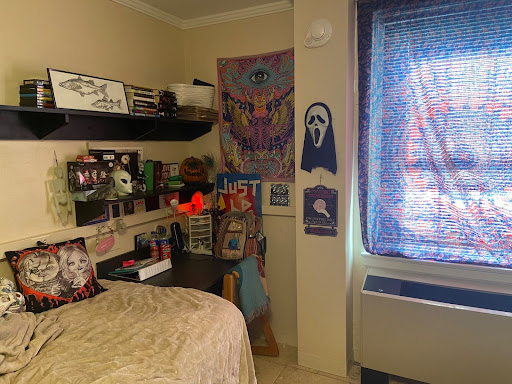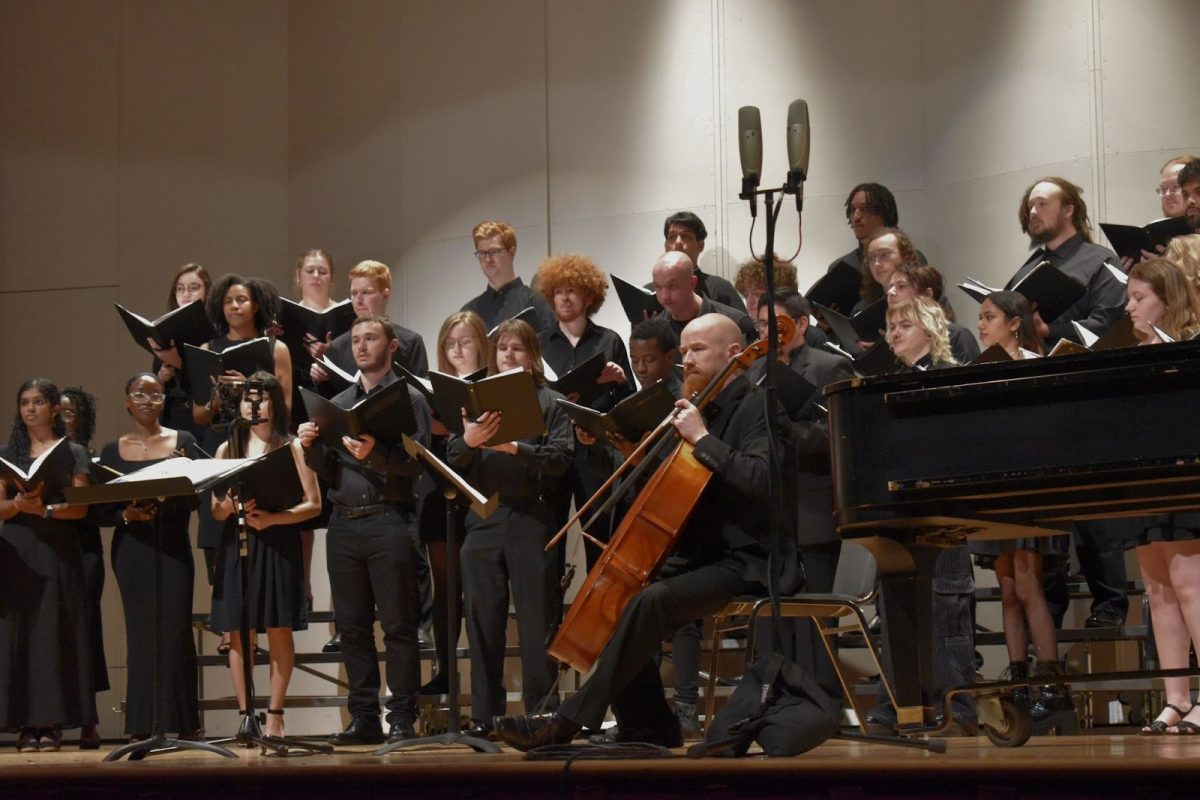Going green at Guilford is getting our school recognized on the national stage. The Sustainability program was recognized in “Princeton Review’s Guide to 322 Green Colleges.” The guide ranked schools based on things like a sustainable quality of life and environmental responsibility. Scoring was on a scale from 60 to 99 points, and all schools listed had scores of at least 83. Guilford came in at an impressive 91.
“We like to think its part of the core values of the college,” said Sustainability Program Director David Petree.
Sustainability practices are happening all over campus. As we rush from class to class, chat with friends and worry about our lives after college, a farm grows food for us to eat, solar panels heat water and Sustainability participants conduct surveys.
Many of the sustainability practices are ones we never even see. An example is composting excess food from the cafeteria.
“We compost one-third of excess food and have diverted 8,000 pounds of food waste for compost this year,” said Petree.
Some of the food that turns into compost goes to the Guilford Farm. The small plot, quietly sitting across from the tennis courts and New Garden Friends School, grows food specifically for Guilford’s cafeteria.
“We have everything from asparagus to zucchini — A to Z,” said Guilford Farm Manager Korey Erb.
Most of the farm produce is given to the cafeteria, but excess gets sold to local restaurants like Elizabeth’s Pizza in Quaker Village.
“We have been able to grow the farm and do the work we need to do without being a financial burden,” said Petree.
Some sustainability projects engage people directly like the Green Office program and Eco Dorm energy audit. Both seek to encourage students, faculty and staff to reduce energy usage but had some challenges doing so.
“I do not think students think about it much on a daily basis,” said Eco Dorm worker and first-year Sophia Rivera-Silverstein in a phone interview. “They are thinking more about other things.”
They also felt that over-consumption occurs because it is an easy habit to get into.
“Everybody thinks that ‘I will do it just once,’ and it is an exception,” said Green Office worker and junior Ruby Brinkerhoff. “But, then you do it again next week.”
While sustainability is going strong, proponents want it to stay that way. Nevertheless, there are some obstacles to overcome.
“I think (the challenge) is expanding the farms and continuing to make our program better,” said Vice President for Administration John Varnell in a phone interview.
Part of the effort to improve will include continued participation. Some noticed students were excited about the program but failed to participate.
“This year is much better than last year,” said farm worker Pauravi Shippen-How ’11. “There is that gap between people who are interested and people who come out and help.”
They did, however, offer suggestions for overcoming that gap to improve participation.
“You have to get out here once and take the initiative to get over that hump (and participate),” said first-year Lily Collins.
Another key to improvement will be a greater understanding of sustainability.
“Sustainability is not simply about being green,” said Sustainability Engagement Consultant Bryce Bjornson in an email interview. “It is about recognizing that our current economic system uses the input of fossil fuels as if they were infinite and refining our systems to accept renewable resources.”
“Guilford’s doing a pretty good job, but we can’t rest on our laurels,” said Brinkerhoff. “I really want to see more of it.”






